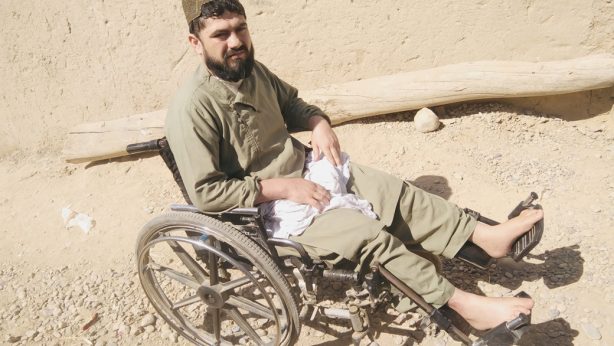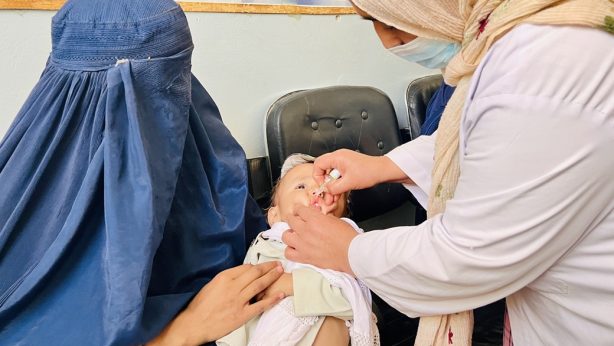Community Leaders Strive to Boost Public Confidence in Polio Vaccination

Kabul, Afghanistan – In the bustling streets of Kabul’s Pul-e-Charkhi area, a quiet but intense battle against polio continues. In this fight, healthcare workers are not alone; local community leaders are standing alongside them.
These community leaders are addressing the concerns of residents and working to increase public confidence in the polio vaccine.
Among them, Haji Mohammad and Samiullah have played a notable role in raising awareness and earning the trust of the community.
Haji Mohammad, a community leader in Pul-e-Charkhi, maintains constant contact with local residents.
He recalls: “When I first started talking about the polio vaccine with people, there were many challenges. Many were worried and skeptical, but I was determined to fulfill my responsibility and protect the health of our community’s children.”
He explained that he visited every household in the area, talking to each family individually, emphasizing that polio is a dangerous disease that can cause paralysis and even death. He pointed out that there is no cure for polio and vaccination is the only way to prevent its devastating effects.
“I wasn’t alone in this process. Religious scholars and healthcare workers also supported me. Once we explained the benefits of the polio vaccine from both a religious and medical perspective, families eagerly agreed to vaccinate their children regularly,” he added.
According to Haji Mohammad, he is pleased that in every polio vaccination campaign, the community actively participates, ensuring that no child is left unvaccinated.
 In the bustling streets of Kabul’s Pul-e-Charkhi area, a quiet but intense battle against polio continues. In this fight, healthcare workers are not alone; local community leaders are standing alongside them © Polio Free Afghanistan/ 2024/ Hosai Ahmadzai
In the bustling streets of Kabul’s Pul-e-Charkhi area, a quiet but intense battle against polio continues. In this fight, healthcare workers are not alone; local community leaders are standing alongside them © Polio Free Afghanistan/ 2024/ Hosai Ahmadzai
He further stated that his efforts will continue because every child’s life is valuable, and as a member of society, he feels a duty to protect them from this dangerous disease.
Samiullah, another community leader in Pul-e-Charkhi, is actively engaged in the fight against polio, much like Haji Mohammad.
He mentioned that he regularly speaks with families, providing them with information on the dangers of polio and the benefits of the vaccine, addressing their questions and concerns. This has fostered a deeper understanding among the public that the vaccine is not harmful, but instead a fundamental right for their children.
“We are committed to eradicating polio from our area and the country as a whole. If anyone still has doubts about the polio vaccine, my colleagues and I arrange face-to-face meetings to hear their concerns and provide reassurance,” he said.
Dr. Abdul Rahim, the head of a local health center in Pul-e-Charkhi, emphasized that preventing polio is not just the responsibility of healthcare workers; it’s a duty shared by every member of the community, especially by local leaders like Haji Mohammad and Samiullah, who have direct connections with the people.
He noted that the cooperation and support of these leaders play a crucial role in the success of the vaccination process.
“The efforts of the community leaders have created a sense of trust among the people, leading to an increase in the number of children brought to health centers for vaccination. This collaboration has allowed us to take significant steps toward preventing polio in the community. I am confident that local leaders will continue their efforts to ensure our children remain safe from this disease,” he said
In conclusion, the coordination and efforts of community leaders and healthcare workers in Kabul’s Pul-e-Charkhi area have played a significant role in the success of polio vaccination campaigns.
These efforts are not only crucial in preventing polio but are also vital for safeguarding the health and future of the community.
By Hosai Ahmadzai, Polio Free Afghanistan


